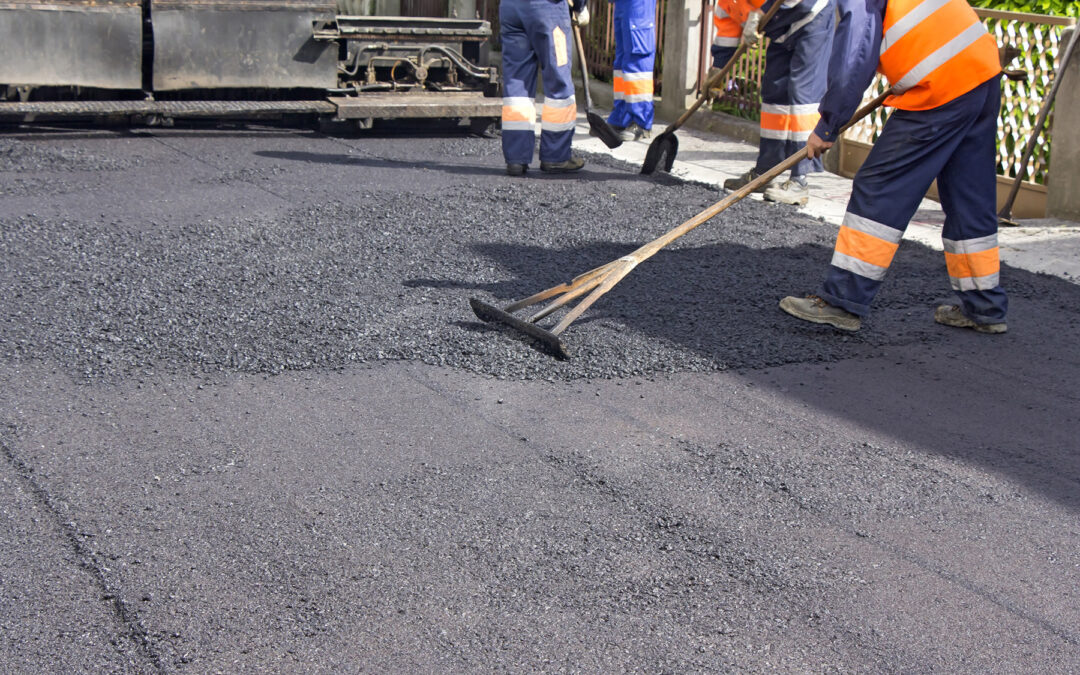 Surface Preparation Before a pavement is placed the surface to be paved must be prepared. Pavements constructed without adequate surface preparation may not meet smoothness specifications, may not bond to the existing pavement (in the case of overlays) or may fail...
Surface Preparation Before a pavement is placed the surface to be paved must be prepared. Pavements constructed without adequate surface preparation may not meet smoothness specifications, may not bond to the existing pavement (in the case of overlays) or may fail...
 Manufacturing HMA is produced in a plant that proportions, blends, and heats aggregate and asphalt to produce an HMA that conforming to JMF requirements. There are two basic types of HMA plants commonly in use today: the batch plant, and the drum mix plant. Batch...
Manufacturing HMA is produced in a plant that proportions, blends, and heats aggregate and asphalt to produce an HMA that conforming to JMF requirements. There are two basic types of HMA plants commonly in use today: the batch plant, and the drum mix plant. Batch...
 Transport Mix transport involves everything required to convey HMA from a production facility to a paving site including truck loading, weighing and ticketing, hauling to the paving site, dumping of the mix into the paver or material transfer vehicle hopper, and truck...
Transport Mix transport involves everything required to convey HMA from a production facility to a paving site including truck loading, weighing and ticketing, hauling to the paving site, dumping of the mix into the paver or material transfer vehicle hopper, and truck...
 Why Asphalt? Pavement Facts Life Cycle Cost Perpetual Pavement Sustainable Pavement Livable Communities Membership How To Join Member Benefits Regular Members Associate Members Pavement Guide Asphalt Pavement History Pavement Evaluation Categories Pavement Management...
Why Asphalt? Pavement Facts Life Cycle Cost Perpetual Pavement Sustainable Pavement Livable Communities Membership How To Join Member Benefits Regular Members Associate Members Pavement Guide Asphalt Pavement History Pavement Evaluation Categories Pavement Management...
 Quality Assurance Quality has become one of the most important consumer decision factors in the selection among competing products and services. This is true not only for individual consumers but also for large corporations, government organizations and the taxpaying...
Quality Assurance Quality has become one of the most important consumer decision factors in the selection among competing products and services. This is true not only for individual consumers but also for large corporations, government organizations and the taxpaying...
 Specifications Specifications are used (1) to convey information concerning desired products from a buyer to a seller or potential seller, (2) as a basis for competitive bidding for the delivery of products, and (3) to measure compliance to contracts. Typically, four...
Specifications Specifications are used (1) to convey information concerning desired products from a buyer to a seller or potential seller, (2) as a basis for competitive bidding for the delivery of products, and (3) to measure compliance to contracts. Typically, four...







